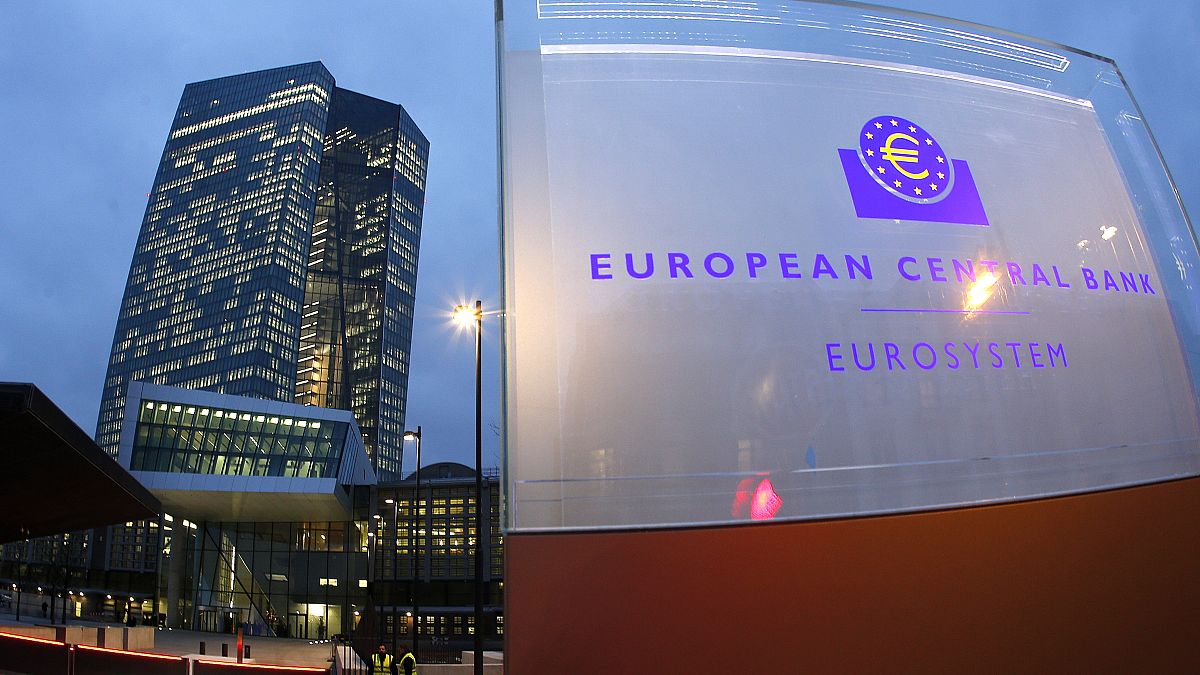Weekly recap: European Central Bank rate cut sparks market rally

Global stock markets were mostly positive this week, buoyed by optimism over central banks’ rate cuts. The ECB’s second rate reduction of the year fuelled a market rally across Europe.
European stock markets rebounded from earlier losses in the week, driven by the highly anticipated ECB rate cut on Thursday, with major benchmarks expected to end the week on a positive note. Across the Atlantic, Wall Street extended gains for the fourth consecutive day as investors focused on central banks’ policy trajectory, with US inflation data indicating a downward trend in consumer prices.
Overall, the technology sector and small-cap stocks outperformed amid the promising outlook of lower interest rates. A softened US dollar and falling government bond yields further boosted precious metal prices, with gold reaching a new high.
Europe
The ECB’s rate cut reignited a broad-based rally across Europe on Thursday. On a weekly basis, the Euro Stoxx 600 edged up by 0.15%, the DAX rose by 1.18%, the CAC 40 climbed by 1.13%, and the FTSE 100 advanced by 0.73%.
As widely expected, the ECB delivered its second rate reduction of the year, while slightly downgrading the economic outlook. However, the Governing Council stated that its policy “is not pre-committing to a particular rate path,” reiterating that future decisions will be data-dependent and approached on a meeting-by-meeting basis. The likelihood of a further rate cut in October has significantly weakened, though a reduction in November remains possible.
Mirroring global trends, the previously hard-hit technology stocks experienced a solid rebound, driven by optimism around a lower interest rate environment. ASML gained 3.48%, while SAP rose by 2.145% over the past five trading days.
Major financial stocks also performed well following significant news. HSBC rose 1%, UBS increased by 1.4%, and BNP Paribas climbed by 1.37% since last week. HSBC is considering merging its Commercial and Investment Banking divisions to cut costs. Meanwhile, UniCredit acquired a 9% stake in Commerzbank, including a 4.49% purchase from the German government. Commerzbank shares surged 18%, while UniCredit shares rose 2.7% on the news.
However, luxury consumer stocks remained subdued due to continued weak demand from China. LVMH shares slid 5.31%, Hermès dropped by 7.31%, Ferrari slipped 2.67%, and Christian Dior slumped 4.52% over a five-day period.
Pharmaceutical shares were mixed. Novo Nordisk returned to positive territory for the week, rising 2.66% on Thursday. The biggest European company said its experimental anti-obesity pill could be more effective than the Wegovy injection. In contrast, Roche fell by over 2% following news that its early-stage weight-loss pill may cause side effects. The Swiss drugmaker’s shares were down 4.47% for the week, hitting a two-month low.
On the economic front, the UK’s monthly GDP recorded a second consecutive stagnation, raising the likelihood of further rate cuts by the Bank of England. However, both the British pound and the euro rebounded from their weekly lows due to the softness of the US dollar amid cooling US inflation.
Wall Street
US stock markets rebounded sharply as investors anticipated the Federal Reserve to deliver its first rate cut next week. US inflation for August cooled to its lowest level since February 2021. However, core inflation came in slightly higher than expected. Despite diminished hopes for a significant rate cut, optimism around a soft landing and a gradual rate reduction by the Fed fuelled a broad market rally.
Over the past five trading days, the Dow Jones Industrial Average rose by 1.86%, the S&P 500 climbed 3.46%, and the Nasdaq Composite advanced by 5.27%.
Eight out of eleven sectors posted weekly gains, with Technology leading the way, up 3.85%. The interest rate-sensitive Real Estate sector also outperformed, rising by 2.15% from last week. However, Energy lagged behind, falling by 2.32% due to slumping crude prices.
Nvidia erased all of last week’s losses, surging 11% over the five-day trading period. Other stocks in the “Magnificent Seven” group had mixed performances, with Microsoft up 4.56%, Amazon rising 5.12%, and Meta gaining 1.69%, while Alphabet fell by 1.93%, and Tesla dipped 0.16% on a weekly basis. Apple shares remained flat after unveiling the AI-powered iPhone 16 series, as the new functionality won’t be available until October.
Asia-Pacific
Major benchmarks across Asia are set to end the week higher, in line with the global trend. Japan’s Nikkei 225 is up slightly this week as the yen’s rally continued. Australia’s ASX 200 reached an all-time high once again, with 10 out of 11 sectors in the index posting gains for the week. The rally was particularly strong in real estate stocks, as hopes for rate cuts mounted.
China’s Hang Seng Index rose for the third consecutive trading day on Friday, despite a flat weekly performance. The Chinese government’s efforts to bolster the economy may be starting to take effect, as exports grew by 8.7% year on year in August, surpassing the expected 6.5%. However, imports barely increased by 0.5%, indicating continued sluggish domestic demand. Meanwhile, Beijing is ramping up support for its troubled property markets, which is expected to restore consumer and business confidence.
Related
European markets fall and euro soars amid Trump tariff delays
European stock markets have slumped after Donald Trump’s second reversal on tariffs caused deep uncertainty among investors, while the euro was on track for i
European Central Bank cuts interest rates, keeps door ajar to…
Open this photo in gallery:The European Central Bank headquarters, in Frankfurt, Germany, on June 6, 2024.Wolfgang Rattay/ReutersThe European Central Bank cut i
European security, economy without Türkiye ‘impossible,’ says business leader –…
ISTANBUL Türkiye’s strategic importance for Europe's future is both undeniable and multifaceted, encompassing critical areas suc
Westcon-Comstor promotes Rene Klein to lead unified European business
Westcon-Comstor has announced the appointment of Rene Klein as executive vice president for EMEA, tasked with leading the company’s new unified leadership st











